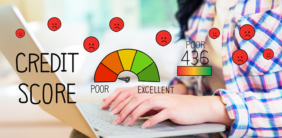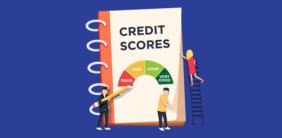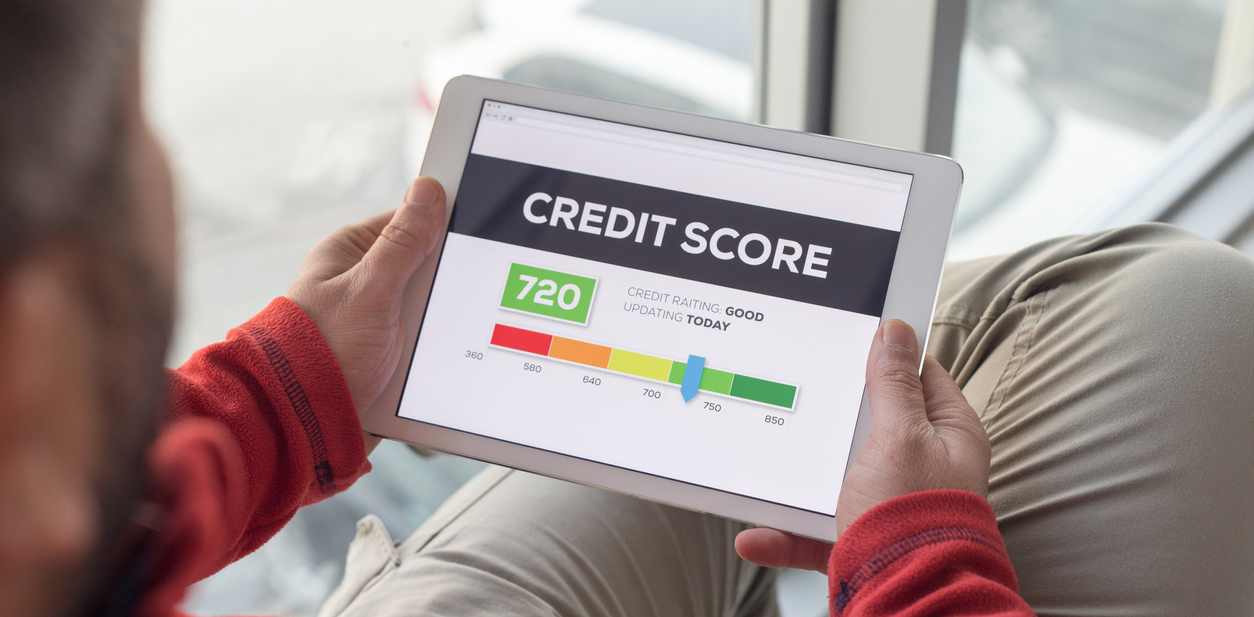Should I Pay off My Student Loan or Car Loan First?
;)

When you have multiple loans, deciding which lender to repay first can be a tough decision.
According to a household debt and credit report from the New York Fed, the outstanding student loan balance was $1.55 trillion in the third quarter of 2020. The same report shows that the total outstanding auto loan debt is over a trillion dollars as well. Households in America will be repaying this debt for a long time.
For borrowers who hold both types of debt, knowing whether to pay off a student loan or car loan first is a personal finance topic worth exploring.
How to Decide Which Debt to Pay Off First
Although choosing which debt to pay off first is a personal decision, here are some key factors to consider.
Interest Rate and APR
One of the most important factors in deciding which loan to pay back first is the interest rate. The higher the interest rate is, the more it costs for you to borrow money. Because of this, it usually makes sense to put extra money toward your high-interest debt first. Doing so can help you save money.
This decision is easy when it comes to paying off credit cards since they typically come with high interest rates. But when it comes to paying student loans or your car loan first, it’s not so simple. The interest rate on your auto loan and student loan could be similar.
When comparing the two, look at each loan’s APR. This number is a better measure of the rate you’ll pay since it accounts for fees.
Prepayment Penalties
When you pay off your loan early, the lender misses out on earning interest. Because of this, some lenders charge a prepayment penalty for paying off a car loan or personal loan early. However, federal law prohibits lenders from charging a prepayment penalty for student loans.
Although prepayment penalties on car loans are rare, review your loan contract or truth in lending statement to see if you’ll be changed a penalty for paying your loan off early.
Loan Balance
The amount of money you owe on each loan should be taken into consideration. For example, let’s say you have a $15,000 car loan and a $100,000 student loan. Based on how much you earn, it could be easier for you to pay off your car loan first.
Applying for New Credit
If you’re applying for a mortgage or another loan, it’s a good idea to consider how paying back each loan will impact your debt-to-income ratio. Your DTI is a ratio that compares your monthly debt with your monthly gross income.
(DTI) Debt-to-Income Ratio Calculator
What is your monthly income?
What are your total monthly debt payments?
By paying off the loan with the highest monthly payment first, you might be able to improve your chances of being approved for a new loan.
Ability to Pause Payments
When you experience hardship, you can place your federal student loans in deferment or forbearance. However, with private student loans and auto lenders, you might not have this option. If you have federal student loans, it might make sense to focus on making extra payments toward your car loan first.
An example of this would be the department of Education pausing payments on federal student loans until September 30, 2021, according to Federal Student Aid.
Deciding to Pay Off a Student Loan or Car Loan First
Paying off a student loan or car loan can have a positive impact on your financial life — it can free up money for other purposes. Choosing which one to pay off first, however, will depend on your unique financial circumstances.
Although it’ll make sense to pay off your student loan first in some scenarios, in others, it might be smarter to pay off your car loan first.
When to Pay Down Student Loan Debt First
In some cases, it might make sense to pay off your student loan debt first. Here are some scenarios where doing so might make sense:
- Your student loan balance is small compared to your auto loan balance.
- The interest rate on your student loan is much higher than the rate on your auto loan.
- Your auto loan lender charges you a prepayment penalty for paying the loan off early.
For example, let’s take a look at how much you’d save by making an extra $200 payment to your car loan with a $20,000 balance each month versus contributing the same amount to a $20,000 student loan balance with a higher APR.
If you increase your monthly car loan payment by $200: If you increase your monthly student loan payment by $200:
By making an extra $200 monthly payment, you’d pay each loan off one year and 10 months early. However, you’d save more in interest by paying the student loan off first.
When to Pay Down a Car Loan First
Here are some scenarios where it makes sense to pay off a car loan first:
- Your federal student loan payments are paused and have a 0% interest rate.
- The amount of your student loan is much larger than your car loan.
- You want to pay down your car loan quickly to release a cosigner
- Paying down your car loan will improve your debt-to-income ratio more than paying down your student loans.
- You’re enrolled in an income-driven or public service loan forgiveness plan.
If you have a federal student loan that’s paused and has a 0% interest rate, now is the perfect time to put more money toward your car loan if you want to pay it off sooner. Unless you have a 0% interest car loan, the winning decision is to pay down your car loan first.
Other Options to Lower Your Monthly Payments and Become Debt-Free Faster
If you have extra cash to pay off your loans faster, that’s wonderful. However, if you don’t, it’s not the only option to lower the amount of your monthly payments or interest rate. You can lower it by applying debt repayment strategies, refinancing your loans, or enrolling in special programs offered by the lender.
Apply Debt Repayment Strategies
The two most common debt payoff methods are: the snowball method and the avalanche method. If you used the former method, you’d pay off your smallest debt first, while making minimum payments on your other debt. The latter method would require you to pay off the debt with the highest interest rate first.
If you decided to use one of these strategies, it could help you decide whether to pay off your student loan or car loan first. For example, if you chose the snowball method and your student loan debt was smaller than your auto loan debt, you’d pay off the student loan first.
Refinance Your Auto Loan
Refinancing your auto loan replaces your current loan with a new loan, ideally with a lower interest rate to help you save money on your auto loan every month.
Many choose to refinance in order to pay off other debt — like credit cards or student loans — or use that money to pay down the car loan principal. According to the State of Auto Refinance report, 42% of borrowers saved $1,000 or more per year refinancing their car loans in 2020, and the average rate reduction was 5.5%.
To compare rates from different lenders, you can start by pre-qualifying, since doing so has no impact on your credit score. However, you can also choose to rate shop with different lenders and get approved rates. As long as you do so within the rate shopping period, those multiple credit inquiries will only count as one. This means you won’t have to worry about your credit score dipping with every hard credit inquiry made while applying for multiple auto refinance offers.
Refinance Your Student Loan
One way to lower your student loan interest rate is to refinance them. By doing so, you could save money on interest and lower your monthly payment.
However, if you have a federal student loan, be mindful that, by refinancing your student loan, you’ll lose federal protections and the ability to enroll in loan forgiveness programs.
Enroll in Public Loan Forgiveness Program
If you’re employed with a government agency or not-for-profit organization, you might qualify to have your loans forgiven. After enrolling in the program, you must make 120 qualifying payments. At the end of the program, your student loan balance will be forgiven.
This might be a good option if you have a large student loan balance and plan on working for an employer that qualifies for a while.
Income-Driven Repayment Plans
Enrolling in an income-driven repayment plan is another way to lower your monthly student loan payment. This option is available for borrowers with federal student loans. For example, the pay as you earn repayment plan (PAYE) caps your payments at 10% of your discretionary earnings.
After 20 years of repaying your student loan under this plan, the remaining amount is forgiven. However, the forgiven portion is considered taxable income.
Enroll in Autopay to Reduce Student Loan Interest Rate
If you have a federal or private student loan, some lenders will give you a discount for enrolling in their autopay program. The current reduction for direct loans is .25%. Although that number seems small, it could save you some money over time.
Final Thoughts on Paying Off a Student Loan or Car Loan
To decide whether to pay off a student loan or a car loan first, first review your financial situation. If you can afford to pay off one of your loans, calculate how much each option would save you in interest. Also, compare the terms of each loan, such as prepayment penalties and federal protections. Doing so will help you decide which option to pursue.
If you can’t afford to pay off one, you can always look into refinancing one or both of your loans. This could drop the interest rate and your monthly payment.
Regardless of which loan you decide to pay off first, both will have a positive impact on your financial life. Paying off a loan or reducing the monthly amount and interest rate will take you one step closer to achieving financial freedom.











